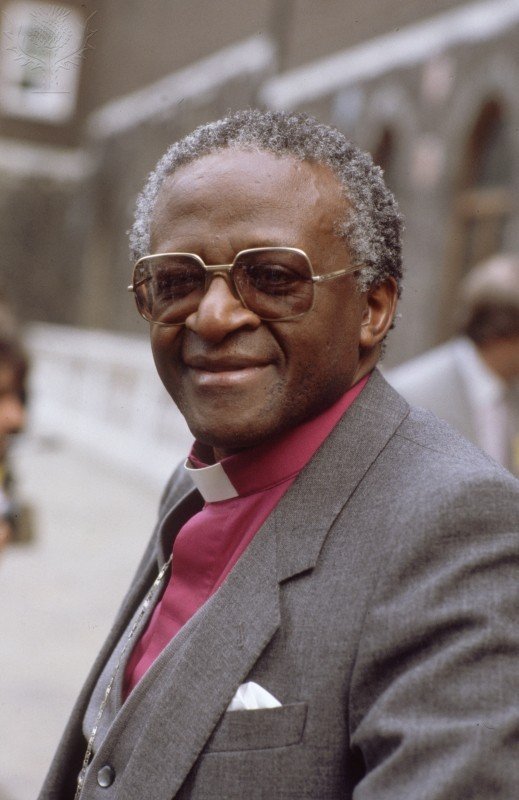On December 26, Desmond Tutu, an advocate who helped end apartheid, passed away from prostate cancer at 90 years old. However, he would not pass away in many hearts, as when he was alive, he achieved many great things by fighting for equal rights for black South Africans.
Desmond Mpilo Tutu was born on October 7, 1931, in Klerksdorp, South Africa. As a child in South Africa, he learned of the segregation between white and black Africans, but despite that, he made the best of the situation and continued to live cheerfully. In 1953, the government passed the Bantu Education Act, which lowered the quality of education that black South Africans received and their conditions. Though he wanted to pursue a career in the medical field, he could not afford the training necessary. So Tutu graduated with a teacher’s certificate and continued his education at the University of South Africa, where he then received a bachelor’s degree in 1954. However, he discontinued his teaching career in 1957, as the education system promoted inequality in South Africa. In 1958, he enrolled at St. Peter’s Theological College in Johannesburg and became an official priest in 1961.
As he got older and more knowledgeable of the racism South Africa was experiencing under apartheid, he grew restless and fought on the frontline, thus drawing national and international attention to the problem. He was appointed Bishop of Lesotho and selected as a general secretary of the South African Council of Churches. He used his authoritative rank to advocate for the end of the atrocities in South Africa and became a renowned leader in ending apartheid.
In 1984, Tutu was awarded the Nobel Peace Prize in recognition of his efforts and contributions for his fight to obtain justice, and in 1986, Tutu accepted the position of the first black Archbishop of Capetown. As apartheid in South Africa came to an end in 1994, Nelson Mandela, the first black president, appointed Tutu as the head of the Truth and Reconciliation Commission, allowing him to investigate and report the effects of the apartheid and claims of human rights abuses.
Even after he retired from public life in 1996, Tutu continued to advocate for social justice and issues, such as HIV/AIDS prevention and climate change. To do so, he continued his work with the Elders, a group of international leaders that he co-founded in 2007 that focused on resolving conflicts throughout the world.
His actions have inspired millions of people around the globe, and people will continue to remember him as a world leader and freedom fighter among Nelson Mandela, Gandhi, and many others.
Quotes said by Desmond Tutu:
- “Forgiving is not forgetting; it’s actually remembering–remembering and not using your right to hit back. It’s a second chance for a new beginning. And the remembering part is particularly important. Especially if you don’t want to repeat what happened.”
- “Do your little bit of good where you are; it’s those little bits of good put together that overwhelm the world.”
- God’s dream is that you and I and all of us will realize that we are family, that we are made for togetherness, for goodness, and for compassion.
Books written by Desmond Tutu:
- The Divine Intervention
- Hope and Suffering
- No Future Without Forgiveness
- God Has a Dream: A Vision of Hope for Our Time
- Made for Goodness: And Why This Makes All the Difference
- The Book of Forgiving (co-authored with Mpho Tutu)
- God’s Dream (co-authored with Douglas Carlton Abrams)
- The Rainbow People of God
- The Book of Joy (co-authored with Douglas Carlton Abrams and the 14th Dalai Lama)
Awards:
- Nobel Peace Prize
- U.S. Presidential Medal of Freedom
- Templeton Prize
- Fulbright Prize
- Gandhi Peace Prize
- Sydney Peace Prize
- Albert Schweitzer Prize for Humanitarianism
Works Cited
Buck, Pearl S. “Desmond Tutu – Quotes, Children & Books.” Biography, https://www.biography.com/political-figure/desmond-tutu. Accessed 28 December 2021.
“Desmond Tutu | Biography, Facts, & Nobel Peace Prize.” Britannica, 26 December 2021, https://www.britannica.com/biography/Desmond-Tutu. Accessed 28 December 2021.
